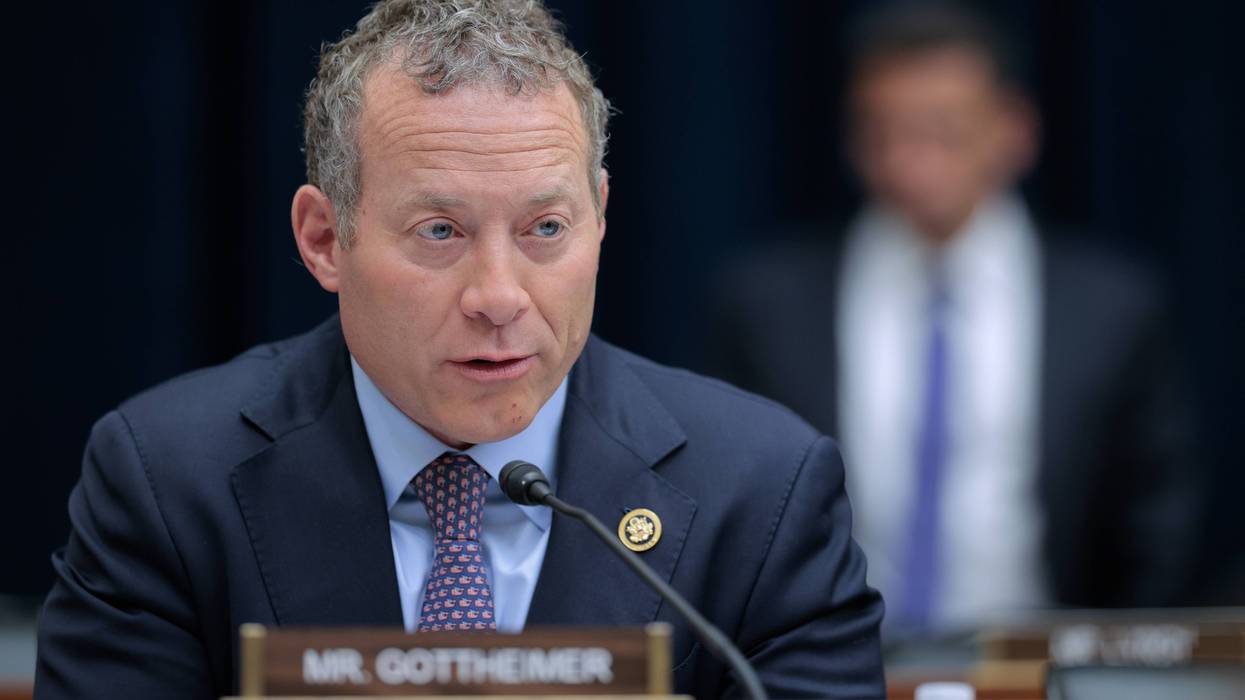January, 23 2012, 01:45pm EDT

For Immediate Release
Contact:
Rob Mrowka, Center for Biological Diversity, (702) 249-5821
Matt Pacenza, HEAL Utah, (801) 864-0264
Zach Frankel, Utah Rivers Council, (801) 699-1856
Bob Quist, Moki Mac River Expeditions, (435) 749-1135
Tim Vetere, Vetere Farms Green River, (435) 210-4447
Citizens, Groups Condemn Approval of Green River Nuclear Reactor's Water Rights, Pledge to Continue to Fight Proposal
SALT LAKE CITY
Utahns in and around Green River and beyond expressed serious disappointment after State Engineer Kent Jones approved the transfer on Friday of a massive amount of river water to Blue Castle Holdings, the company that hopes to build nuclear reactors on the Green River.
"This was the only opportunity for a Utah official to reject this terrible plan," says Matt Pacenza, policy director of HEAL Utah, which has led the fight against the reactors. "Now all that stands between us and reactors at the gateway to southern Utah is a federal agency notorious for cozying up to the nuclear industry."
"Pretending there is enough water in the Green River for the power plant is a mistake," says Bob Quist, the owner of Moki Mac River Expeditions, which leads rafting trips on the Green River. "It's bad for my business and bad for everyone that depends on this river."
Blue Castle has already begun the process of applying to the U.S. Nuclear Regulatory Commission for an "early site permit" and then a "construction and operation license," which would allow it to begin building its proposed 3,000-megawatt reactors on a site about five miles northwest of the town of Green River.
Residents and business people in Green River also condemned the state engineer's decision. "This is going to make it harder for farmers to get the water they need out of the river," says Tim Vetere, owner of Vetere Farms in Green River, which raises melons, sweet corn, field corn, hay and more. "Also, I'm worried that if a nuclear power plant goes in, people won't want to buy my melons."
More than 200 groups and individuals from across Utah and beyond filed official comments to the state engineer over the past few years urging him to reject Blue Castle's bid to draw more than 53,000 acre-feet of water from the Green River. That's as much water as a city of 200,000 people uses in an entire year.
Protesters argued that removing that massive amount of water for nuclear reactors would interfere with the rights of other water users, harm recreational use of the Green River (including its world-renowned rafting industry) and pose a threat to endangered fish species in the river, among a wide range of concerns.
"The Green and Colorado rivers are critical for the survival of the Colorado pikeminnow, humpback chub, bonytail and razorback sucker, all listed as endangered under the Endangered Species Act -- the highest level of imperilment," said Rob Mrowka, an ecologist and conservation advocate with the Center for Biological Diversity. "Adding this massive water withdrawal atop climate change and regional drying will result in severe impairment of the rivers' abilities to sustain their part of Utah's natural heritage."
"It's disappointing this unpopular and unsustainable project was approved by the state engineer," said Zach Frankel, the founding executive director of Utah Rivers Council. "Very few Utahns want to see these reactors built in their backyard, especially so a few East Coast businessmen can sell power to California."
The individuals and groups who had protested Blue Castle's water-rights application are now considering a formal legal appeal, which would first go to the state engineer and then to a district court judge.
"By no means are we done fighting this fight," said Pacenza. "Nuclear power is a terrible fit for Utah's energy future. It costs too much, uses way too much water, produces dangerous nuclear waste and poses unacceptable risks."
At the Center for Biological Diversity, we believe that the welfare of human beings is deeply linked to nature — to the existence in our world of a vast diversity of wild animals and plants. Because diversity has intrinsic value, and because its loss impoverishes society, we work to secure a future for all species, great and small, hovering on the brink of extinction. We do so through science, law and creative media, with a focus on protecting the lands, waters and climate that species need to survive.
(520) 623-5252LATEST NEWS
Democratic Lawmakers Demand Probe Into DHS Warrantless Location Tracking
“Location data is extremely sensitive, and can reveal someone’s religion, their political views, medical conditions, addictions, and with whom they spend time."
Mar 03, 2026
Over 70 Democratic US lawmakers on Tuesday demanded a new investigation into warrantless purchases of Americans' location data by Department of Homeland Security agencies—including Immigration and Customs Enforcement—which critics say violate the Fourth Amendment prohibition of unwarranted search and seizure.
In a letter to DHS Inspector General Joseph Cuffari, 72 congressional Democrats led by Sen. Ron Wyden (D-Ore.) and Rep. Adriano Espaillat (D-NY) wrote, "Public contracting documents indicate that Immigration and Customs Enforcement (ICE) recently resumed buying Americans’ location data from a shady data broker" after the agency "ended a previous program to purchase Americans’ cellphone location data in 2023, following an investigation by your office and scrutiny from Congress."
"Location data is extremely sensitive, and can reveal someone’s religion, their political views, medical conditions, addictions, and with whom they spend time," the lawmakers' letter states. "It is for that reason that ordinarily, the government must obtain a warrant from a judge in order to demand such data from phone or technology companies."
While the Fourth Amendment generally prohibits the government from searching or obtaining Americans' private information without a warrant, federal agencies have circumvented the proscription by buying sensitive personal data from private brokers.
"Public reports indicate that ICE has resumed its location data purchases, even though DHS has yet to adopt all of the recommendations from your prior review," the lawmakers noted in their letter.
The letter continues:
ICE issued a no-bid contract to the surveillance company PenLink in 2025, which included licenses for its location tracking product, Webloc, according to press reports. Webloc was developed by the controversial surveillance company Cobwebs Technologies, which was combined with Nebraska-based PenLink as part of a $200 million private equity deal in 2023. Cobwebs gained notoriety when Meta banned the company in 2021, as part of a crackdown on surveillance mercenaries after detecting the company’s customers targeting activists, opposition politicians, and government officials in Hong Kong and Mexico.
ICE is now stonewalling congressional oversight into its purchase of location data. Sen. Wyden’s office requested a briefing from ICE soon after this contract was revealed in the press, in October, which was scheduled in December, for February 10, 2026. One day before that briefing was to take place, ICE canceled it with no explanation and without any offer to reschedule.
"Given DHS’ failure to adopt a policy for the use of commercial data, coupled with ICE awarding a no-bid contract to a shady data broker that is likely violating federal law, we urge you to open another investigation into the purchase," the lawmakers wrote.
The letter asks:
- Whether ICE and other DHS components are purchasing illegally obtained location data about Americans;
- If so, why does DHS not have policies in place to prevent taxpayer dollars from going to contractors that have invaded Americans’ privacy in violation of federal law;
- How ICE and other DHS components have used location data and whether they have used it to investigate Americans for engaging in constitutionally protected activities, including protesting or monitoring ICE operations;
- Whether ICE and other DHS components are auditing employee access to commercial location data to identify likely patterns of abuse; and
- Why has DHS still not adopted a policy for the use of commercial location data, as you recommended in 2023?
As the Electronic Frontier Foundation (EFF) recently explained, ICE has spent $5 million on Webloc and Tangles, another location and social media surveillance product made by PenLink.
According to EFF:
Webloc gathers the locations of millions of phones by gathering data from mobile data brokers and linking it together with other information about users. Tangles is a social media surveillance tool which combines web scraping with access to social media application programming interfaces. These tools are able to build a dossier on anyone who has a public social media account. Tangles is able to link together a person’s posting history, posts, and comments containing keywords, location history, tags, social graph, and photos with those of their friends and family. PenLink then sells this information to law enforcement, allowing law enforcement to avoid the need for a warrant. This means ICE can look up historic and current locations of many people all across the US without ever having to get a warrant.
There have been several attempts to solidify restrictions on government purchase of Americans' personal data in recent years, most notably the Fourth Amendment Is Not for Sale Act (FANFSA), which failed to pass.
Last month, Sens. Dick Durbin (D-Ill.) and Mike Lee (R-Utah) introduced the Security and Freedom Enhancement Act, which would reauthorize Section 702 of the Foreign Intelligence Surveillance Act but is also intended to protect Americans from warrantless spying, including by closing the data broker loophole that lets law enforcement buy their way around the Fourth Amendment.
Also last month, Rep. Shontel Brown (D-Ohio) led 13 Democratic lawmakers who sent a separate letter to Homeland Security Secretary Kristi Noem seeking answers about ICE's use of PenLink surveillance technology "designed to collect and analyze cellphone location data across entire neighborhoods."
"Mass surveillance of entire communities or city blocks raises serious questions about data privacy and potential violations of civil liberties," Brown wrote.
"Americans should be able to trust their government to uphold the Constitution and respect fundamental rights," she added. "Instead, DHS appears to be engaging in broad surveillance practices to monitor entire communities, violating Americans’ fundamental civil rights and civil liberties to punish dissent and advance the president's cruel and unconstitutional mass deportation agenda."
Keep ReadingShow Less
Competing Dem War Powers Resolution Would Give Trump a Monthlong Free Pass in Iran
"The American people are firmly against this war and will see straight through this ruse," said one campaigner.
Mar 03, 2026
As the House of Representatives faces mounting pressure to pass Congressmen Ro Khanna and Thomas Massie's war powers resolution to end the US-Israeli assault on Iran, six right-wing Democrats on Tuesday introduced a competing bill that would give President Donald Trump a green light to keep waging war in the Middle East for the next month.
Khanna (D-Calif.) and Thomas Massie (R-Ky.) have been pushing for their H.Con.Res.38 since shortly before Trump bombed Iranian nuclear facilities last June. Trump and Israeli Prime Minister Benjamin Netanyahu's Saturday attack has ramped up demands for Congress to pass that resolution, along with S.J.Res.59, introduced last year by Sen. Tim Kaine (D-Va.).
Those resolutions, expected to receive votes this week, were already facing uphill battles in both Republican-controlled chambers, and all-but-certain vetoes if they ever made it to Trump, whose administration claims "Operation Epic Fury" is about preventing a nuclear-armed Iran, while critics around the world accuse him and Netanyahu of engaging in an illegal regime change war.
At least six US service members and hundreds of Iranians are now dead. Despite the rising death toll, the Democrats behind the new proposal—Reps. Jim Costa (Calif.), Henry Cuellar (Texas), Jared Golden (Maine), Josh Gottheimer (NJ), Greg Landsman (Ohio), and Jimmy Panetta (Calif.)—made clear that they oppose a swift end to the conflict.
"There is a concern that the Khanna-Massie war powers resolution currently requires the immediate withdrawal of US forces, even while Iran is actively targeting American troops, assets, embassies, and our allies across the region," they said in a statement. "It is vital that we allow for a safe transition, that protects our service members, embassies, and allies, not a potentially precarious withdrawal."
While proposing a 30-day window for ending the conflict—absent an authorization for the use of military force or a formal declaration of war from Congress—the six Democrats also said that "an open-ended commitment by the administration and the recent implication from the secretary of defense that ground troops may be engaged are both unacceptable."
Politico called the new measure "a sign of how some Democrats are struggling to reconcile their opposition to the Trump administration's military action with a desire to appear hawkish on national security—even in a largely symbolic capacity."
The outlet also noted that when asked about the latest proposal during a Tuesday news conference, House Minority Leader Hakeem Jeffries (D-NY) said that "our focus is on the resolution that will be on the floor this week."
"We'll continue to make the strongest possible case," Jeffries added. "There is going to be very strong Democratic support for the war powers resolution across the ideological spectrum."
Cavan Kharrazian, a senior policy adviser at the grassroots group Demand Progress, was far more critical, declaring that "of course Democrats who raced to applaud Trump's illegal war in Iran, and in one case was pardoned by him, would draft a pro-war war powers resolution meant to sabotage the real war powers resolution receiving a vote this week."
"This Trojan horse resolution attempts to give Trump a free pass to continue waging an unauthorized war in Iran for a whole month—exactly the amount of time that Trump has said he expects the war to last," he warned. "The American people are firmly against this war and will see straight through this ruse."
"Representatives need to ignore this bad-faith distraction," Kharrazian argued, "and vote for the bipartisan Khanna-Massie resolution that will actually stop this illegal war and bring our troops home."
Keep ReadingShow Less
‘These Guys Can’t Help Themselves’: Cruz Pushes $200 Billion Capital Gains Tax Cut Without OK From Congress
Republican senators said they were seeking to end an "unfair inflation tax on everyday Americans." But nearly all the benefits of their proposal would go to the wealthiest 1%.
Mar 03, 2026
Two leading Republicans are pushing for the Trump administration to issue another $200 billion tax cut, primarily to the wealthiest Americans, without congressional approval.
The Washington Post reported Tuesday that Sens. Ted Cruz (R-Texas) and Tim Scott (R-SC) sent a letter to Treasury Secretary Scott Bessent urging him to use executive authority to lower the federal tax on capital gains—the profits from selling stocks, bonds, real estate, and other investments.
The senators have proposed that capital gains taxes should be “indexed for inflation." As the Post explained:
The plan pushed by Cruz and Scott has been sought by conservatives for many years. Under current law, an investor who bought $100 worth of stock in 1990 and sold it today for $300 would currently owe capital gains taxes on the full $200 in profit. But the $100 investment in 1990 would be worth roughly $230 in today’s dollars after accounting for inflation. Under the Cruz-Scott proposal, the investor would only owe taxes on that $70, rather than the full $200.
The senators called on Bessent to "eliminate" this "unfair inflation tax on everyday Americans."
According to Federal Reserve data from 2025, the richest 1% of Americans owned about half of all stocks, while the poorest 50% owned only 1%.
Republicans' so-called One Big Beautiful Bill Act (OBBBA), which enacted massive cuts to social programs like Medicaid and the Supplemental Nutrition Assistance Program (SNAP) last summer, is already estimated to funnel more than $1 trillion to the top 1% of earners over the next 10 years, according to the Institute on Taxation and Economic Policy.
It is unclear whether Bessent would even have the power to change how gains are taxed without an act of Congress, or if Bessent has any interest in doing so. But the vast majority of the benefits from Cruz and Scott's proposal, if enacted, would likely go to the rich as well.
When the Trump administration first considered indexing capital gains taxes to inflation back in 2018, the Penn Wharton Budget Model projected that 63% of the benefits would flow to the richest 0.1%—those making tens of millions per year—while 86% would go to the top 1%.
Those in the bottom 90% of earners would see just over 2% of the overall benefits, with those in the bottom half receiving basically nothing.
According to the Post, the senators view lowering capital gains taxes as part of a GOP bid to "improve its economic approval rating with voters ahead of the 2026 midterm elections," in which the party is expected to take a walloping, according to current polls.
Voters have not responded kindly to previous bills that handed lavish tax breaks to the rich. At the time of its passage, the OBBBA was one of the least popular pieces of legislation in modern history, with several polls showing nearly a 2-to-1 disapproval rating.
But Cruz and Scott are pushing for this policy change despite the public revulsion and the fact that the Department of Justice has previously ruled that the Treasury Department can't make policy without Congress' approval.
"Ted Cruz is asking the Treasury Department to break the law to give another round of tax breaks to the ultrarich," remarked Sen. Ron Wyden (D-Ore.), the ranking member of the Senate Finance Committee. "These guys can't help themselves."
Keep ReadingShow Less
Most Popular


